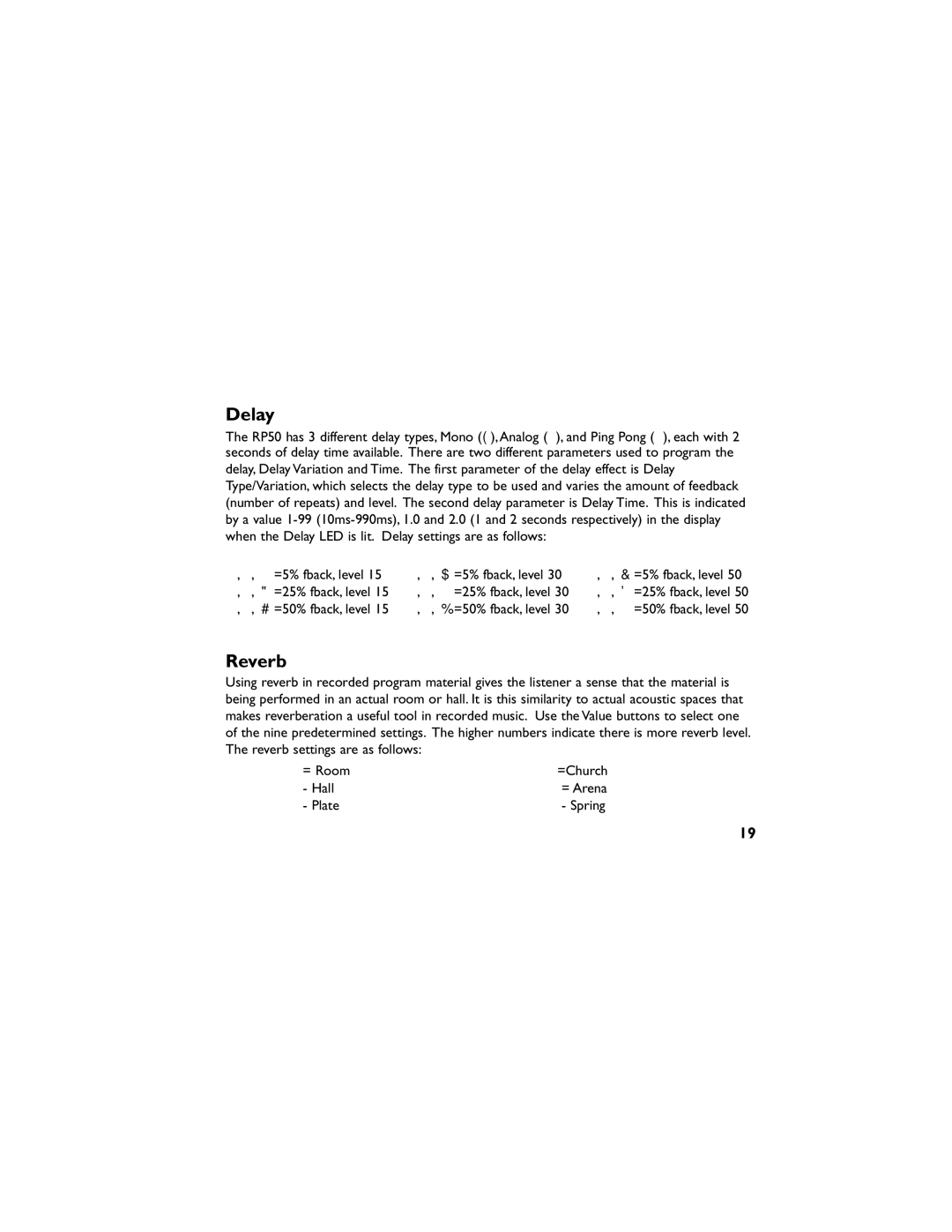Delay
The RP50 has 3 different delay types, Mono (D),Analog (A), and Ping Pong (P), each with 2 seconds of delay time available. There are two different parameters used to program the delay, Delay Variation and Time. The first parameter of the delay effect is Delay Type/Variation, which selects the delay type to be used and varies the amount of feedback (number of repeats) and level. The second delay parameter is Delay Time. This is indicated by a value
d, a, p1=5% fback, level 15 d, a, p2=25% fback, level 15 d, a, p3=50% fback, level 15
d, a, p4=5% fback, level 30 d, a, p5=25% fback, level 30 d, a, p6=50% fback, level 30
d, a, p7=5% fback, level 50 d, a, p8=25% fback, level 50 d, a, p9=50% fback, level 50
Reverb
Using reverb in recorded program material gives the listener a sense that the material is being performed in an actual room or hall. It is this similarity to actual acoustic spaces that makes reverberation a useful tool in recorded music. Use the Value buttons to select one of the nine predetermined settings. The higher numbers indicate there is more reverb level. The reverb settings are as follows:
= Room | |||
- Hall | = Arena | ||
- Plate | - Spring | ||
19
